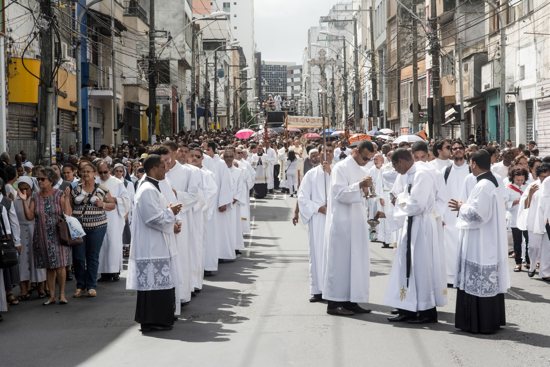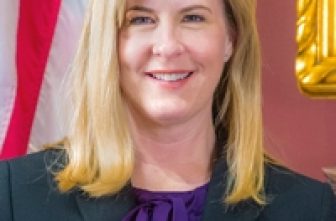
A diocesan priest belongs to a diocese, normally a geographic area of the Church. The ordinary for a diocesan priest is his bishop. A diocesan priest’s main ministry is parish work. He makes two promises: obedience to his bishop and celibacy, perpetual continence for the sake of the kingdom of heaven. He does not promise poverty, is paid, retains his own finances, is able to have personal possessions such as a car or a home, and is sometimes called a secular priest.
A priest in consecrated life usually belongs to a religious order such as the Jesuits, Dominicans or Franciscans. He resides in a local community such as a monastery, rectory or abbey, and is a member of a province, a large geographical area which may encompass a state, a group of states, a country, or multiple countries. His major superior is his provincial or abbot. The main ministry is the charism of his community, such as teaching, preaching or missionary work. But a religious priest, as determined by his community or superior, may also serve in a parish or another ministry. A priest in consecrated life professes the three evangelical counsels of poverty, chastity and obedience. He does not have his own possessions and holds everything in common.
A pastor is the spiritual leader and shepherd of a parish. The pastor is assigned by the bishop, represents the bishop and is responsible to the bishop. The pastor has a threefold responsibility to teach, govern and sanctify (Canon 519). He is responsible for the care of the souls within his parish, to teach the truths of the faith, proclaim and explain the Gospel, celebrate the sacraments, uphold the centrality of the Eucharist, promote the regular reception of reconciliation, foster personal and communal prayer (Canon 528 and 530), and oversee the temporal affairs of the parish. In most dioceses in the United States, a pastor is assigned for a six-year term, renewable for a second six-year term.
A parochial vicar is also known as an associate pastor or an assistant pastor. A parochial vicar is a priest who represents his pastor and serves in partnership with him and on behalf of him. Together with his pastor, and under his guidance, they are responsible for the pastoral care of the entire parish. A parochial vicar may also have a specialized ministry within the parish, such as responsibility for the faith formation program or some aspect of the parish school (Canons 545-552). A parochial vicar assignment is not for a definite amount of time, is open-ended, and is typically two or three years.
A parochial administrator takes the place of the pastor in his absence. He has the same rights and responsibilities as the pastor (Canons 539 and 540). The assignment is made by the bishop and usually is temporary, normally until the pastor returns or a new pastor is found. In the Archdiocese of St. Paul and Minneapolis, when a priest is assigned to a parish without prior experience as a pastor, he is assigned as a parochial administrator under the direction of a supervisor who is an experienced pastor, and after one year is assigned as pastor.
A sacramental minister is a priest who assists at a parish with the sacraments: weekend or weekday Masses, confessions, baptisms, anointings, funerals and weddings. A sacramental minister typically does not live at the parish, has another full-time ministry, often at a hospital or school, or is retired, available to assist on a regular or occasional basis, and has none of the responsibilities associated with running a parish.
A rector is the head of a major religious institution such as a cathedral or basilica, seminary, Catholic university, or a shrine.
A chaplain is responsible for the pastoral care of an institution or group of people not part of a parish. Chaplains serve hospitals, schools, local police and fire departments, the military, prisons and many Catholic organizations.
Monsignor is an honorary title for a priest who had given many years of distinguished service, has exhibited exceptional virtue and holiness, or has been entrusted with an office with much responsibility.
Father Van Sloun is the director of clergy personnel for the Archdiocese of St. Paul and Minneapolis.




